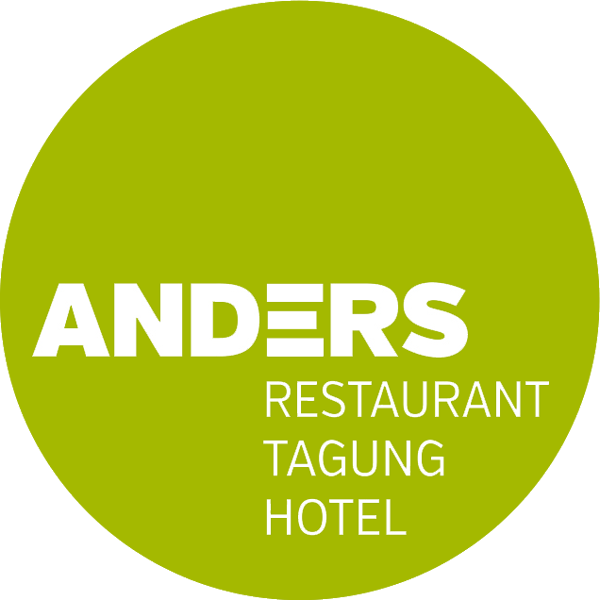
Pupils
Graduation is getting closer – and then?

students
Time to get to know professional life.

Career starters
Start your professional flight!

TOP training company
Who, if not we?

ARE YOU MARTIN?
DYNAMIC TRAINEE WANTED
That’s Martin. Martin is a hotel management trainee at ANDERS. This is located in the beautiful world bird park town of Walsrode and is a 3 star hotel and is one of the TOP 250 conference hotels in Germany. Martin chose to train as a hotel specialist because he enjoys working with people, has always found the warm service of experience catering interesting and would like to go out into the big wide world in the future. Martin usually works 5 days a week. He has enough time to study for his vocational school, which he attends for 1-2 days every week. He doesn’t have to work during this time.
FAIR FROM THE BEGINNING
Martin loves to go skiing in Austria or Switzerland. He can afford this because he earns better than most other trainees in his industry. Therefore, he can save well for it. From his nearby apartment it’s not far to go shopping or to the nearest bus stop. On days off, he sometimes meets his friends, as the city center is only a 5-minute bike ride away. Or he drives to the metropolitan city of Hanover, which only takes about half an hour by car.
FOCUS ON FURTHER DEVELOPMENT
Martin goes through all the departments the hotel has to offer according to the general training plan. Under the guidance of his instructors, he cooks, reserves, plans and recommends from the heart. He has the best ingredients from the region and a dedicated team at his side and makes our lovely guests really happy. Martin loves his training! His trainers are already planning the future with him in his favorite department. Unfortunately, Martin only exists in our imagination.
THAT’S WHY WE’RE LOOKING FOR MARTIN.
Martin can also be called Henry, Franziska or Simone. Are you Martin?
Graduation is getting closer – and then?
Training at the ANDERS Hotel Walsrode is the right career choice for anyone who wants to inspire people and has a passion for excellent hospitality and perfect service. We will design your training together with you and always promote your strengths.
Our goal is to offer all trainees a permanent position with us upon successful completion. We are happy to invest a lot in this.
Hotel specialist | Hotel manager (Hofa)
Hotel specialist | Hotel manager (Hofa)
International business people attending a conference, large families spending their all-inclusive summer vacation together or two people on their first date in the restaurant of a luxury hotel – there are many different reasons to go to a hotel as a guest. What they all have in common: the hotel specialist takes care of them the hotel manager.
What does a hotel manager do? a hotel manager?
Kitchen work: The salad as a starter, potatoes as a main course and ice cream as a dessert – as a hotel manager | As a hotel manager, you not only know the menu by heart, but also help with the preparation in the kitchen. Of course, the prevailing hygiene regulations are observed.
Restaurant work: Advising guests on their choice of dishes, recommending the dish of the day and the right red wine to go with it. You also serve the dishes, bring the bill and collect the money. If the hotel has a terrace or a beer garden, guest services are also provided there. Care is taken to ensure that every guest is taken care of and that the outdoor facilities are always in presentable condition.
Housekeeping: Dusting, remaking the beds and stocking the bathroom with hygiene products – tidying up, better known as housekeeping, is also part of a hotel manager’s everyday work. Among other things, she has to ensure that the rooms are clean before new guests move into them.
Reception: Carrying out the check-in, informing about breakfast times and explaining the way to the room – typical tasks of a hotel manager if he or she is assigned to the reception. You are also familiar with the hotel software where the room reservations are stored and answering telephone inquiries is also part of this area.
In the office: planning conferences and weddings or department meetings. Behind the scenes of the hotel you have to take care of organizational and administrative tasks.
Why should you become a hotel manager? Become a hotel manager?
The hotel and catering industry is one of the strongest economic sectors in Germany – and because there are so many different types of accommodation options, the choice of employers is correspondingly very large. Compared to other professions in the industry, hotel professionals are specialists in the areas of sales, marketing and logistics. In addition, the further training opportunities in this area are very promising if you are a hotel specialist Hotel management, for example, completed a degree.
Where can I work as a hotel specialist? Work as a hotel manager?
Of course, you will most often find employment in hotels, hostels or guesthouses. You can also work in spa clinics.
What are the working hours as a hotel manager? Hotel manager?
Hotel managers work at very different times and often in shifts. If you have early shift, for example, you start at four in the morning and end your working day around midday. Late shifts usually start in the afternoon and continue into the night. For example, if you work at reception, you may find yourself working all night. By the way: Special working hours apply to underage trainees, as they are not allowed to work at night according to the Youth Labor Protection Act.
What work clothes do hotel professionals wear?
As a rule, hotel managers wear prescribed work clothing. What exactly they wear depends on the hotel and department. If you work at the reception, you often wear a jacket or blazer, which is combined with black trousers, knee-length skirts and black closed shoes. Sometimes hotel managers also wear scarves.
Hotel managers wear a hairnet in the kitchen for hygiene reasons. When you do clean-up work, you wear rubber gloves and as a waitress in a restaurant, for example, you are required to wear a white blouse.
What kind of person do I have to be to be a hotel manager? To become a hotel manager?
Organizational skills: At the reception you have to do different tasks at the same time: the phone rings, someone wants to check in and another guest stows their luggage in the trunk. As a hotel manager, you know who is on when and therefore set priorities.
Doer: Be it cleaning up the rooms or helping with food preparation – you put work orders into action directly and support your colleagues.
Entertainer: Looking after guests makes up a large part of the training. You answer questions, give recommendations or tell us something about the history of the hotel. You are always polite and accommodating.
How is training as a hotel specialist going? Hotel manager?
Prospective hotel professionals usually complete a three-year dual training course. This means that you spend the theoretical part in the vocational school and the practical phases in the training company. You attend vocational school once or twice a week. Here you have regular school lessons and don’t have to go to your training company.
The practical phases are completed in the training company. You go through several departments such as the front office – better known as reception -, the kitchen or the restaurant. How many areas you get to know always depends on the size of the hotel.
What does a hotel manager learn? a hotel manager in vocational school?
The vocational school includes both job-specific and cross-job content on the curriculum. Specialist topics include merchandise management, guest orientation and hotel organization. General subjects include politics, English, German and sport.
Some vocational schools offer so-called differentiation courses, i.e. a kind of elective courses. Then, in addition to the required subjects, you can take a wine, cooking, cocktail or language course, for example.
1st year of training:
First of all, it’s about the area of guest orientation, which deals with beverages as well as glasses, cutlery and crockery. As a prospective hotel manager, you also learn how drinks and food are served in your first year. You also get to grips with operational management and learn how registrations are registered or rejected and which guidelines in the area of data protection must be observed. You also attend English courses right at the beginning of your training.
2nd year of training:
Now the focus is on advice and sales in the restaurant. How are guests properly advised? How do you deal with complaints? How do you conduct professional conversations with customers who may be complaining or have particularly specific questions? These and many other questions will be answered in the second year of training. Merchandise management is also on the curriculum. Then you learn, among other things, how to place orders and determine sales prices economically. Another topic area is the goods service, which teaches how guest rooms are cleaned and prepared.
3rd year of training:
In the last year of training, you deepen your knowledge in the area of guest orientation. Now it’s about the reception area and how, for example, to create offers, carry out guest orders and manage the hotel cash register. You will also become familiar with marketing topics and learn how to develop and implement concepts. When it comes to the topic of economic services, you ultimately find out how staff is best deployed.
What does a hotel manager learn? Hotel manager in practice?
During the training you get to know all the departments in the training company – but there is no fixed order. In the first year of training, for example, you do work in the kitchen and help prepare salads. Another day you help out in the restaurant, taking orders and serving drinks. You can also work on the breakfast buffet, for example.
In the second year of training, you conduct sales discussions, serve food and can even help design the menu. Prospective hotel professionals will also learn how to clean guest rooms and prepare them properly. In larger restaurants you can even help create a marketing concept.
In the final year of training, you will be more often employed in the reception area, where you carry out check-ins, implement guest requests and look after guests. It can also happen that the trainees are involved in the preparation of events, for example if they work in a trade fair hotel.
Specialist in restaurants and event catering
Specialist for restaurants and event catering (ReVer)
The Sunday brunch, the big family meal, the candlelight dinner or the lunch break snack – Germans love to eat out. A good visit to a restaurant not only includes good food, but also friendly and competent service. Guests attach great importance to feeling comfortable during their restaurant visits, which is why the|die (ReVer) are not only easy to serve, but also a welcome business partner.
What does a specialist in restaurants and event catering do?
set the tables
The ReVer ensures that all tables are set properly and are presented clearly. To do this, she or he polishes glasses and cutlery, sets them out, fills the containers for salt and pepper and decorates the tables with small tealight candles, for example.
receive guests
When guests arrive, you greet them as ReVer and check the reservation or offer them seats that are still available. As soon as the guests are seated, they are handed the food and drink menu.
Advise guests
What is today’s dish, what ingredients are included and which wine goes best with it? ReVer’s advise guests on their choice of food and drinks by making recommendations and informing them, for example, about ingredients and methods of preparation. Precise information for allergy sufferers or vegetarians is also important.
to take an order
After the guest has made a decision, the order is written down on a notepad or on a portable ordering computer. The order is then sent to the kitchen and the drinks counter.
Serve and account for food and drinks
ReVer serve food and drinks. If the restaurant has a bar, they also prepare mixed drinks, for example. Once the guests have finished eating, the staff clears away the food and drinks and takes care of payment.
Do rework
A ReVer’s work doesn’t stop once the guests have left. Their tasks also include clearing and setting tables, tidying up dining rooms and preparing daily accounts.
Prepare events
If an event with many guests is coming up, ReVer’s create the schedule, make menu suggestions and calculate the costs. They ensure that the event itself runs smoothly.
Perform room service
ReVers provide room service in hotels. They take telephone orders and prepare everything on a tray or trolley before bringing the food and drinks to the hotel room.
Did you know already, …
… that the following criteria are evaluated when awarding the coveted Michelin stars: the freshness of the ingredients, high basic quality standards, innovative and unique dishes and the harmony of the entire offering?
Why should you become a specialist in restaurants and event catering?
As a ReVer you have very good career prospects, as the catering industry would not function without ReVer’s. With so many restaurants and the popularity of eating out, you don’t have to worry about finding a job.
Where can I work as a restaurant and event catering specialist?
As a ReVer, as the name suggests, you work primarily in restaurants and pubs. But you can also find employment in hotels or guesthouses. You can also work in catering establishments such as department stores. Another place of use are butcher shops with catering services.
Your locations at a glance
– Restaurants
– Restaurants
– Pensions
– retail dining establishments
– Catering services
What are the working hours as a restaurant and event catering specialist?
In the catering industry, in addition to working on weekdays, you also have to work on weekends, public holidays and at night.
working hours
– Shift work
– Weekend work
– Holiday work
– Night work
What work clothes do restaurant professionals wear?
ReVer’s wear work clothes in everyday working life, although there is no uniform regulation. They often wear a shirt with a tie or bow tie and a name tag that identifies them as a service person. When setting the table, wear white gloves so that you don’t get your fingers on the clean cutlery and glasses.
What type of person do I have to be to become a restaurant and event catering specialist?
Organizational skills
In your job, you take care of the guests’ satisfaction, ensuring that the daily routine runs smoothly and planning large celebrations. That’s why you should be organizationally fit.
entertainer
You love working with people and have strong communication skills. You serve your guests in a friendly, courteous and good manners and are always available for a little chat.
perfectionist
The highest level of concentration is required when collecting cash and accuracy is also important when setting up the tables. Precise work should suit you for this job.
How does training as a specialist in restaurants and event catering work?
The dual training as a ReVer usually lasts three years. During this time, prospective ReVers attend vocational school and the training company at the same time. The vocational school lessons, which take place every week, serve as a theoretical basis. Trainees learn everything they need to know about topics such as kitchen work, service and marketing. In the company, they put their theoretical knowledge into practice.
Did you know already, …
…that around 400,000 employees work in the catering industry in Germany?
What does a restaurant and event catering specialist learn at vocational school?
At the vocational school, future ReVers learn, for example, how to advise guests on their selection, how food and drinks should be served and how to react in the event of complaints.
1st year of training
Working in the kitchen
For work in the kitchen, trainees learn about the basics of food law such as personnel, operational and product hygiene. You will also learn how to select the right ingredients for a recipe and how to achieve a balanced ratio between nutritional ingredients and energy value when preparing food.
Working in service
In order to be able to offer good service, you learn at vocational school how to set tables, prepare buffets and serve drinks, as well as how to deal with guests. To do this, you learn different serving methods and communication rules. Working in a magazine
For work in the magazine – i.e. written work in the office – prospective restaurant professionals acquire knowledge about data backup and data protection. You will learn to differentiate between different forms of purchase contracts and to recognize disruptions in the purchase contract. They also familiarize themselves with order and delivery notes.
2nd year of training
Advice and sales in the restaurant
The vocational school teaches sales psychology knowledge that enables trainees to conduct sales discussions with customers. Learning technical language is also part of the timetable for trainees.
marketing
As a future professional, you learn to understand marketing as a sales-promoting concept. You become familiar with different marketing instruments such as promotion and assess the advertising measures from the perspective of the target group.
Economic service
Trainees are aware that cleanliness and hygiene are of central importance for the well-being of the guest and the success of the company. They select cleaning and care products based on economic and ecological criteria and draw up a work plan for cleaning, maintaining and preparing guest rooms.
Merchandise management
The vocational school teachers provide the trainees with knowledge about concluding legal transactions. They are trained to prepare purchase contracts for the company and conclude them according to instructions. They also learn how to process payment transactions correctly.
3rd year of training
Working in the reception area
In the reception area, a trainee processes reservations, receives and looks after guests and creates guest invoices. For example, in vocational school you learn how to deal with complaints.
Working in marketing
Trainees carry out weaknesses and strengths analyzes for companies and, based on this, define goals and tasks for marketing. The group discusses sensible budgeting for the implementation of the measures.
Management tasks in the economic service
In this module, future restaurant professionals will learn the importance of motivation, leadership style and training. You plan employee deployment and create rosters. They also learn how to carry out inspection work in the guest rooms.
What does a restaurant and event catering specialist learn in practice?
Trainees begin their everyday work by setting tables and, for example, arranging flower decorations on the tables. In addition, they label the board with today’s daily offers.
Once guests have arrived, the order is taken and passed on to the kitchen staff. It is important that restaurant professionals actively approach the guest in order to start a conversation and recommend food and drinks.
The Rever learns from their experienced colleagues that you must always serve to the guest’s right. While the guests are dining, she always keeps her eyes open to notice requests and requests, but without seeming intrusive. Idle time is used to polish glasses and cutlery.
The instructor also teaches the aspiring ReVer how to pour drinks correctly: When pouring, the left hand must be held behind the back, the glass must not be filled to the brim and the bottle must be twisted so that there are no splashes. The trainer also shows his trainees which techniques they can use to safely transport three or four full plates at the same time.
Cook
Turquoise water, white beaches, tropical temperatures or would you prefer untouched fjords with steep rock faces and wild animals? As a chef you can have it all – if you work on a cruise ship. But even on land – and that’s the norm in this job – things are exotic and varied almost every day. You cook spaghetti bolognese, nasi goreng, coq au vin and dishes you’ve never heard of before.
What does a chef do?
Create menu plans: Before going to the stove, the cook creates the menu plan. He not only ensures that the food is as varied as possible, but also takes the current season and special customer requests into account. Asparagus, for example, is typically available in spring, while mushrooms are more common in autumn. As a chef, you also have to keep in mind the expectations of many different groups of people – from diabetics to vegetarians.
Buying ingredients: Especially in smaller restaurants, chefs are responsible for purchasing the ingredients in addition to the actual cooking. This includes, among other things, comparing prices and quality of goods from different retailers and calculating the amount of food.
Storing ingredients: As a chef, you also have to know where and how which ingredients are stored – potatoes, for example, in a dark and cool place, raw meat never with other foods due to the risk of salmonella. This is also stipulated by the hygiene regulations that must be adhered to in restaurants. Regularly checking the inventory to ensure the shelf life of the food is also part of the cook’s responsibilities.
Preparing dishes: The range of different dishes that you can prepare as a chef is huge. That’s why the employees in commercial kitchens often specialize in certain areas: While one chef cuts up the meat and prepares it, another cleans and cuts the salad. Another person takes care of the side dishes. Kitchen appliances such as mixers, microwave ovens and deep fryers make the cook’s work easier.
Arranging the food: The dishes should not only taste good, but also look attractive. The chef pays attention to this when placing the food on the plate. He also checks that the dish is complete and that it matches the order before the service staff sets off with the dish to the customer.
Create a workflow plan and supervise staff: As a chef, you also plan the deployment of staff and the workflow depending on your position. As a head chef, it is part of your job to assign, instruct and supervise subordinate employees, such as kitchen assistants.
Cleaning and tidying up the workplace: At the end of the working day, it’s time to tidy up – unneeded ingredients have to be packed away, kitchen equipment cleaned and waste disposed of. This all happens in compliance with strict hygiene regulations.
Your tasks at a glance
– Create a menu tailored to the season and individual customer requirements
– Buy ingredients for dishes and store them correctly
– Prepare dishes using various kitchen appliances and arrange them attractively
– Instruct and supervise kitchen help staff
– Clean the workplace and dispose of leftover food
– Check inventory
Why should you become a chef?
Chefs are wanted! So the chances of finding a job are good. There are also a variety of opportunities to continue your training after training to become a chef. For example, if you specialize in a certain area, you have a unique selling point that sets you apart from other competitions. In terms of salary, the following applies: those who have more responsibility earn more. Finally, as a chef you also have the choice to become self-employed, for example by starting your own restaurant.
Where can I work as a chef?
As a chef, you will of course primarily work in kitchens. Namely from restaurants, hotels, canteens, hospitals, nursing homes, catering companies and also cruise ships. Jobs can also be found in the food industry with manufacturers of finished products and frozen foods. Depending on your strengths, you could work as a chef with the appropriate qualifications in the office or in guest rooms.
Do you have to specialize as a chef?
That depends on the employer. In smaller kitchens, the chef is solely responsible for all work steps – from planning to preparing the individual components to serving. In large kitchens, however, the work areas are often divided. For example, the saucier is responsible for meat, fish and sauces, while the entremetier takes care of soups and side dishes.
How do you become a star chef?
A star, awarded by the hotel and restaurant guide Michelin, is one of the highest awards a hotel or restaurant can receive. Anonymous testers decide who is recommended in the annual report. Anyone who is listed has therefore been awarded a star. Strictly speaking, however, it is the kitchen and not the chef that receives the star. Since the head chef is responsible for the excellent cuisine, he can call himself a star chef. By the way, it doesn’t matter whether it’s a posh restaurant or a snack bar.
Your locations at a glance
– Restaurants
– Hotels
– Canteens
– Hospitals
– Nursing homes
– Catering companies
– Cruise ships
– Food industry
What are the working hours as a chef?
Depending on the location of work, it is common for chefs to work nights, weekends and holidays. This is usually regulated by shift work. There is currently a rethink in the industry: working time models make the job more attractive.
working hours
– Shift work
– Even on weekends, at night and on public holidays
– 39 hours a week
What work clothes do chefs wear?
In the professional kitchen, chefs usually wear white coats and toques, also known as chef’s hats. The latter prevents hair from getting into the food. There are also chef’s trousers and aprons.
What type of person do I have to be to become a chef?
Team player
The kitchen staff works in a small space, everyone does different work and it can get stressful at times. You should enjoy working in a team and be reliable.
perfectionist
As a chef, you should be able to work under time pressure – and always observe the legal regulations to protect consumers. Caution is also required when handling sharp knives, hot fat and other sources of danger in the kitchen.
Handyman
Do you have nimble hands, are you skilled and creative? Perfect, because chefs work with a variety of kitchen appliances when preparing and then drape the food in an attractive way.
How does training as a chef work?
The training to become a chef is carried out in parallel in the training company and in the vocational school, so it is dual. The vocational school lessons take place every week. The training usually lasts three years, although it may be shortened by six months.
After the first year there is an intermediate practical exam, and the final exam at the Chamber of Commerce and Industry (IHK for short) at the end has a practical and a theoretical part. In it, the examinee prepares, among other things, a 3-course menu, arranges everything and advises the guests.
Future chefs acquire essential knowledge and skills relating to the kitchen during their training period. In addition, the trainees are also provided with knowledge on topics such as rights and obligations during training, organization of the training company and environmental protection.
What does a chef learn in vocational school?
In addition to general education subjects such as German and economics and social studies, the vocational school also offers a number of job-specific learning fields. This includes menu items, regional domestic and foreign cuisine as well as cold and warm buffets. English is also a teaching subject: later on, trained chefs from abroad should be able to advise foreign customers.
1st year of training
Working in the kitchen
In the first year of training, the trainees learn how to simply prepare and serve dishes according to recipes. You will also learn the basics of food law and the importance of environmental protection. The safety regulations for working in kitchens are also part of the curriculum.
Working in service
Aspiring chefs also train outside of the kitchen: in addition to serving food and drinks in different ways, it’s all about being a good host. Sales and consultations are trained, menu cards are created and guest bills are calculated.
Working in the magazine
The trainees learn how to store which foods and check orders. They are also trained in office work, which means they learn how a sales contract works, how to manage files and how to use communication media.
2nd year of training
Food made from plant-based raw materials
During their training, future chefs learn everything about plant-based ingredients such as fruit, vegetables and grains. It’s not just about how these foods are prepared and stored, but also about their nutritional importance – and specifically about dishes for vegetarians or vegans.
Cold and warm buffets
In order to be able to offer a rich buffet, the trainee must not only learn how to prepare the food but also learn how to present it in a sales-promoting way.
dessert
Creativity is required here: The trainee gains experience in combining and creating desserts in terms of taste, appearance, seasonal and regional aspects.
A la carte shop
À la carte means that guests can freely choose dishes from the menu. This means that the chefs have more effort and greater uncertainty when planning. In this learning field, aspiring chefs are taught how to prepare dishes made from meat, game and poultry or fish and seafood.
3rd year of training
banquet
A banquet – a banquet – requires special planning. Trainees learn what types of banquets there are, how to design menus and advise guests. Knowledge of sales psychology will help you with this.
Action week
During their training, aspiring chefs develop a project that focuses on a specific type of food or a specific country, such as a “mushroom week” in the fall. The trainees plan the campaign week, select dishes, design offer cards and decorate tables and rooms.
Menu sequence
One learning area is dedicated to creating meal sequences. The trainees are guided by menu rules and economic aspects. You will learn to design different menus for different occasions and design menu cards.
Regional domestic and foreign cuisine
The trainees gain an insight into both German and foreign cuisine. They also learn how to research original recipes and change them to suit the times.
Devices that you encounter in everyday work
– commercial kitchen stove
– Deep fryer
– combi steamer
– kneading machine
– Knife
– Pan
What does a chef learn in practice?
The practical part of the training takes place in the company, for example in a restaurant or hotel. In the first year of training, the focus is on the basics: you learn how to deal with guests and equipment, and get an insight into inventory management and office organization.
>In the second and third year of training, you take on more responsibility: you independently prepare smaller dishes such as starters, salads and soups using the knowledge about food that you acquired at vocational school. You help with the processing of meat and fish and are increasingly involved in sales promotion.
Specialist in the hospitality industry
When ‘The Perfect Dinner’ is on, you carefully analyze the table decorations and are embarrassed when someone doesn’t know how to arrange the glasses correctly. Since you know the restaurant industry well, you don’t find the dishes served there all that unusual. Or maybe when you’re on holiday you always shake your head at how the beds are made and would like to show the staff how it’s done properly? If you recognize yourself in this, you can turn your passion for beautiful hospitality into a career – with training as a specialist in the hospitality industry.
What is training to become a specialist in the hospitality industry all about?
In this dual training you will learn everything you need to know in everyday working life in the company. Of course, this differs depending on which division (you will find more information about this in the next section) you have chosen. At vocational school you will learn everything theoretical, such as preparation methods, technical terms, hygiene measures and many laws. Laws are particularly important in your job in the hospitality industry, because there are a lot of things to consider within the framework of the Restaurant Act, the Youth Protection Act and the Infection Protection Act.
By the way, the hospitality industry consists of two main sectors: food and lodging (pronounced: Loschie). Kost stands for food and this division includes everything that has to do with food and guests, for example work in restaurants, cafés, bars, canteens or tasks in catering. Well-trained specialists are important in this area; after all, guests should feel comfortable eating and drinking and ultimately be impressed by your great service.
What do you do when training to become a specialist in the hospitality industry?
Your tasks in the catering area include, for example, tasks such as setting up plates, preparing guest rooms, waiting tables, cashiers, providing friendly and advice to guests and being well versed in the food and drinks on offer. Speaking of guests, it’s important to remember that you’re working with guests, not customers. After all, people should feel at home and not just be treated as people who leave money in the company.
The Logis division includes everything that has to do with accommodation. In addition to hotels, this also includes guesthouses and all restaurants in the so-called hotel industry. Hotel industry is the general term for all businesses that offer food in addition to overnight stays. In purely overnight restaurants, you will be primarily responsible for preparing guest rooms during and after your training as a specialist in the hospitality industry. So you have to check whether the cleaning staff did a good job, or clean it yourself and make sure that everything is tidy and nothing is broken. Here, too, you ensure that the guests enjoy their stay. In hotels, food and accommodation are combined and you can work in both areas. By the way, if you’re plagued by wanderlust, you can also apply for jobs on a cruise ship or in restaurants outside of Germany.
In addition to these two large sectors, there are two smaller ones in which you could work or train as a specialist in the hospitality industry. That would be the entertainment sector, which includes everything that – as the name suggests – has to do with entertainment. For example, you can work in a disco or a club, at the reception or at the bar and in variety shows food is usually offered with the show. The other smaller division is the spa and wellness area. You can also be used in many places in thermal baths, spas and health resorts, e.g. at the reception, preparing the treatment rooms or in the catering industry. Whatever field you choose, it is important that you enjoy working in that area. Only by having fun can you give your guests a good experience and also manage more stressful phases better.
Did you know already, …
… that the following criteria are evaluated when awarding the coveted Michelin stars: the freshness of the ingredients, high basic quality standards, innovative and unique dishes and the harmony of the entire offering?
You should become a professional in the hospitality industry if…
you enjoy working with people.
you like to spread a good mood.
Providing guests with good service is important to you.
You should definitely not become a professional in the hospitality industry if…
you have two left hands.
Patience is not your strength.
the basic multiplication table is (too) a high science for you.
What do you earn as a trainee?
What do I actually deserve?
Of course, at ANDERS no one has to work for free or even for free!
When it comes to remuneration, we comply with the collective agreement of the German Hotel and Restaurant Association (DEHOGA for short).
This is very good, because DEHOGA not only specifies the rights and obligations in this collective agreement but also the minimum wage that every trainee must receive!
In the training occupations we offer you will receive:
1st year of training € 900.00
2nd year of training € 1000.00
3rd year of training € 1150.00
We also support you with the following extra services, which we as a company simply add on top:
– You receive financial benefits such as company pension schemes and capital-forming benefits
– Food and drink are provided – if you work with us it is guaranteed that you can take part in the staff meals and drink as much water, coffee or cocoa as you want
– You will receive your report book from us in digital form so that you can keep it conveniently and in a timely manner
– we offer you internal training and seminars and prepare you individually and personally for your exams
– If you still need an apartment, we can also help you find an apartment
– There are also tips
What is a tip or tip?
A tip or TIP is an increased final fee that the guest pays voluntarily if he or she enjoyed the meal, the food was particularly tasty or you were particularly nice. The tip in Germany is usually between 5 and 10% of the total amount. Tipping isn’t just for “drinking”. If you would like to find out more about tipping and its history, just take a look at Wikipedia here.
– For particularly interested and committed trainees, we also offer exchange programs with other hotels or restaurants around the world
– If you do well and your grades at school are also good, we would be happy to take you on a permanent and permanent job after your training

We enable an optimal start to training through an appropriate orientation phase and training period.
- Trainees receive a “welcome letter” before/at the start of the training (with brief information about the start – by email or post)
- Before/at the start, trainees receive a welcome/information folder with training/company-relevant information. (digital or print).
- Trainees take part in an introduction/orientation at the beginning of their training.
- During the first week of their training, trainers will explain the basic operational topics and processes.
- The trainees are introduced to colleagues and contacts in the first week.
Before training, applicants have the opportunity to complete an internship and/or get to know the company on one or more trial days. - Every trainee receives their company training plan at the start of their training.
- During the probationary period, discussions are held between the trainee and the trainer about the current status.
- Even before the training, an exchange takes place between our company and the trainee (via email, post, personal conversations, What’s App, special online portals…).
Every trainee has a contact person in the company who is available to help them with any questions or problems.
- There is a person responsible for training in our company. (These tasks can also be carried out by the same person.)
- The trainee has a specialist contact person available in each area/department. (These tasks can also be carried out by the same person.)
- “Guardians” from among older trainees or colleagues provide additional support to the trainers.
- The contact persons are easily accessible and present for the trainees.
- The trainees do not suffer any disadvantages by turning to their contacts with problems or criticism.
- The trainees in our company have the opportunity to elect a trainee representative who represents the interests of the trainees.
The qualifications and presence of our trainers guarantee training at a high professional and human level.
- We ensure that our trainers continue to develop professionally as well as in terms of leadership/training know-how/social skills.
- The trainers take part in internal training courses at least once during the certification period (including e-learning)
- Our company’s trainers work on a voluntary basis as examiners in IHK or HwK examination committees.
- Our company’s trainers are volunteers as jury members at professional competitions.
- Our company’s trainers are volunteers as jury members at professional competitions.
- Trainers/training managers in our company regularly take part in external training meetings (e.g. network meetings or Erfa groups from !HK or DEHOGA, discussion groups with the vocational school…)
- Trainers/those responsible for training in our company have the opportunity for other professional development (e.g. visits to trade fairs, reading specialist press and literature)
- We encourage our specialists to obtain the AEVO examination (qualification for trainers).
Our working atmosphere is characterized by cosmopolitanism, fairness, tolerance and respect.
- Working together as a team is a given for us.
- Unfair, aggressive behavior will not be tolerated (e.g. insults, yelling, etc.).
- In the event of a dispute, everyone is given the opportunity to express their point of view.
- We guarantee equal opportunities.
- We do not tolerate discrimination of any kind (from colleagues or guests).
We value the personality and performance of our trainees and are open to constructive feedback.
- Praise and criticism (feedback on performance and behavior, e.g. after events) are expressed immediately and directly.
- In annual employee reviews, trainees receive feedback on their level of performance.
- We give trainees the opportunity to express criticism.
- Ideas from our trainees are welcome and will be implemented if possible.
- Trainee meetings are part of our corporate culture.
- Special achievements are recognized with an award (e.g. trainee of the month) or with material/financial gifts (e.g. vouchers).
We encourage participation in career-related projects, competitions and training courses.
- Our trainees have the opportunity to take part in internal trainee projects.
- Our trainees have the opportunity to take part in external trainee projects (e.g. theme days at the vocational school, trade fairs, exchange programs, school trips, association events…).
- We point out trainees to professional competitions that are suitable for them and encourage them to take part.
- We release trainees for professional competitions.
- We release trainees for training measures for professional competitions.
- We actively involve trainees in our measures to recruit young talent for the hospitality industry and for career orientation (e.g. training scouts, trade fairs, career information days…).
- We contribute to the costs of seminars, competitions, etc. in which our trainees take part.
The vocational school is our partner in dual training, with whom we maintain exchange and collaboration.
- We maintain regular communication with the vocational school.
- We ensure that our trainees regularly attend vocational school classes.
- We care about the academic performance of our trainees.
- Together with the vocational school, we develop measures to address performance deficits (e.g. remedial lessons, support during training).
- We provide vocational school teachers with practical days in the company.
Our trainees are intensively prepared for the final exam.
- Trainees are given the opportunity to prepare intensively for the final examination (e.g. through appropriate work/holiday planning).
- Trainees are regularly trained or receive regular teaching instructions.
- Trainees are prepared internally for the final exam in special training in theory and practice.
- The trainer has time and resources to take care of the trainees’ exam preparation.
- Trainees have the opportunity to take part in external exam preparations (e.g. DEHOGA, IHKs, professional associations, vocational schools).
- Learning material for practice (e.g. shopping cart for the exam menu, books, learning app, e-learning tools) is provided to our trainees free of charge.
We support our trainees in planning their careers and further training.
- Early in the last half of the training, discussions are held with the trainees about their future prospects (e.g. employment, career opportunities, further training…).
- If necessary, we support our trainees in finding a job in the industry after training.
- We show trainees concrete development opportunities within the company or within the industry.
- Trainees receive further training recommendations if necessary.
- We keep in touch with our former trainees.
We pay attention to a balance between work and private life.
- Compliance with the Working Hours Act and the Youth Employment Protection Act are our priority.
- We will announce our rosters 7 days in advance.
- Trainees are free to decide whether they want to fill in on an unscheduled basis or not.
- Trainees do not have to work late before the vocational school (i.e. after 8 p.m.).
- Trainees usually no longer have to work in the company after vocational school lessons.
- Requests for days off and vacation will be taken into account when planning work/vacation wherever possible.
- We offer our trainees the opportunity to speak to the trainer/person responsible for training if desired.
- Our company supports health promotion measures (e.g. fitness studio, health day, nutritional advice in collaboration with a health insurance company, prevention day in collaboration with the BGN …).
Compliance with legal regulations and the training framework plan is a matter of course for us. In addition, we follow the collective bargaining regulations regarding working hours and training remuneration.
- Our company is bound by collective agreements.
- We pay the trainees (at least) the collectively agreed training allowance
- We teach our trainees the minimum content provided for in the training framework plan and are guided by the time guidelines provided there.
- We adhere to our company training plan and avoid activities that are not related to training.
- Our trainees usually work 5 days a week (including vocational school).
- In our company, trainees’ overtime is compensated for with free time or money.
- Trainees receive discounts in the company for private purposes (e.g. on catering services, overnight stays).
- Do you offer other benefits – if so, which ones?
- Internet telephone
- Minute-based working time billing
- Discounts also for family members, Exchange with other hotels to get to know other training companies
Overnight stays in cooperation hotels (TOP250 conference hotels) at the family rate (C 60/night)
Member of Fair Job Hotels
Acting responsibly for the image of the entire industry.
- With our actions, we take responsibility for the image of the entire industry.

Would you like to find out more about this seal?
We are looking forward to your application!
P.s.: Please understand that we do NOT return written applications submitted by post or handed over by ourselves.
For data protection reasons, we shred them immediately after scanning them.
Sorry.

